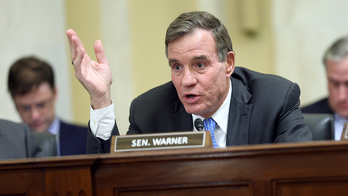The U.N. Human Rights Council, since its inception in 2006, has called for restrictions on free speech and ignored blatant human rights abuses in a host of countries. It has passed five separate resolutions condemning Israel -- more resolutions than the total number it passed against all of the other 191 U.N. member states combined.
It counts among its members consistent human rights violators as China, Cuba, Egypt, Libya and Saudi Arabia.
And now the United States wants to become one of the organization's 47 members.
The Obama administration claims it can reform the "rights" body from the inside out. In a statement Tuesday, Secretary of State Hillary Rodham Clinton and U.S. Ambassador to the United Nations Susan Rice said the administration will join the council to help make it more effective as part of President Obama's desire to create a "new era of engagement" with the international community.
"Human rights are an essential element of American global foreign policy," Clinton said. "With others, we will engage in the work of improving the U.N. human rights system to advance the vision of the U.N. Declaration on Human Rights."
The decision caused shockwaves among U.N. critics, who say membership puts the U.S. in the same company as repressive regimes.
"This is a surrender of American values unlike any other," said Anne Bayefsky, senior fellow at the Hudson Institute. "The spectacle of this particular president legitimizing a lethal weapon for the defeat of human rights will haunt him until the end of his term."
Since its inception, the Human Rights Council has held 10 regular sessions concerning human rights worldwide and five special sessions to denounce Israel, including issuing resolutions over the Jewish state's recent incursions in Gaza and Lebanon that exclude any mention of the terror groups Hamas and Hezbollah.
Meanwhile, it has dropped investigations into human rights abuses in a dozen countries, including Belarus, Cuba, the Democratic Republic of the Congo and Liberia, said Bayefsky, who was one of the U.S. delegates to walk out of the U.N.'s 2001 racism conference in Durban, South Africa.
The Obama administration's move is a reversal of the Bush administration's decision in 2006 to isolate the U.N.'s chief rights body. It blasted the council for its "singular focus" on Israel, though the State Department supported the council financially during Bush's term.
The Geneva-based council was created in 2006 to replace the U.N. Commission on Human Rights, which was widely seen as ineffective. But the council has attracted the same criticism as its predecessor.
"We ought to be delegitimizing it by defunding it," John Bolton, former U.S. ambassador to the United Nations, said of the membership initiative. "It's a mistake. It's naive to the point of being dangerous."
Bolton, who served as U.S. ambassador under Bush, told FOXNews.com that the U.S. should continue to shun the council for its repeated attacks on Israel and its refusal to cite blatant rights abuses in places like Iran, Zimbabwe, Burma, Sudan and North Korea.
But a White House aide said that engagement -- not isolation -- is the most effective way to reform the council, which he claimed is essential for it to be an effective body to advance human rights.
"This administration shares many people's concerns that the trajectory of the council is disturbing," Benjamin Chang, deputy spokesman for the National Security Council at the White House, told FOXNews.com.
"It's a body that the president has identified as an important, yet troubled, part of the U.N. system."
Chang cited the council's "groundless criticism and politicized attacked on Israel" as one such concern, but said "it's been clear that this administration has set a new tone with regards to foreign policy and the U.S.'s engagement -- and that clearly needs to be through international institutions" like the U.N.
"As an engaged member, we are working from within rather than from on the sidelines to help advance human rights and help reform this body," he said.
"I'm cautiously optimistic," Hillel Neuer, executive director of U.N. Watch in Geneva, told FOXNews.com. "We know what the council has become, but nevertheless we think that U.S. membership could have some limited, positive impact. The U.S. is going to replace Canada's seat so the voting won't shift enormously."
"We support the decision provided that the U.S. will use their seat at the table to vigorously push back against the agenda of anti-democratic regimes, which today has the council in a stranglehold," Neuer said.
The 47 U.N. member states serve on the council in staggered three-year terms. The next election will be held May 15 at the U.N. General Assembly in New York.
The decision announced Tuesday means the United States will be seeking one of three vacant seats allotted to the so-called "Western Europe and Other States" bloc within the U.N. That bloc is currently represented by Canada, Germany and Switzerland. Diplomats say Norway, New Zealand and Belgium are also interested, but it is believed that New Zealand will step aside to allow the United States to run.
Chang said that by running in the election and then subsequently joining the council, the administration would be able to press forward with its agenda for reform in time for the council's review in 2011.
FOXNews.com's Cristina Corbin and The Associated Press contributed to this report.












































